DOMINOES Digital cOMpetences INformatiOn EcoSystem
Ongoing project
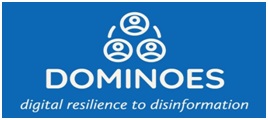
Project: DOMINOES Digital cOMpetences INformatiOn EcoSystem
ID: 2021-1-RO01-KA220-HED-000031158
Implementation period: February 1st, 2022 – January 31st, 2024
Press release
CRESCEnt – Mind the gap in media CoveRagE and Strategic communication in CasE of security Threats
Ongoing project

Strategic partnership project within ERASMUS+ Program
AGREEMENT No. – 2018-1-RO01-KA202-049449
Implementation period: October 1st, 2018 – September 30th, 2020
Participating organizations:
- “Mihai Viteazul” National Intelligence Academy (MVNIA) – Romania
- University “Rey Juan Carlos” (URJC) – Spain
- Kentro Meleton Asfaleias (KEMEA), Center For Security Studies – Greece
- Ministry of Internal Affairs, Directorate for Information and Public Relations (MAI-DIRP) – Romania
Project abstract
CRESCEnt creates a training platform and a set of communication and cross-sectorial strategic communication instruments, which aim to capacitate institutional spokespersons and journalists from security and LEA fields, in order to use media reporting to the public in a conscious and ethical manner.
Here can be found more details.
Press release
Jean Monnet Module – EUSEGOV
Completed project
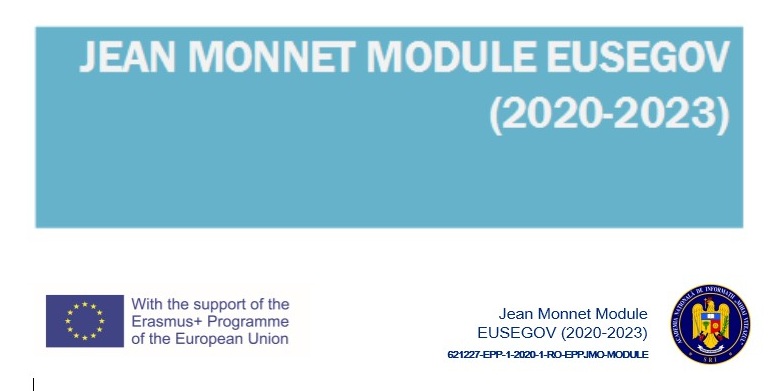
Title: Jean Monnet Module – “A common understanding of EU Security Governance. Teaching and researching the EU security policies and institutions for a better academic and professional approach in security and intelligence field” – EUSEGOV
Completed project: October 21st, 2020 – October 20th, 2023
Institution: „Mihai Viteazul” National Intelligence Academy, Romania
E-mail: eusegov@animv.eu
Contact person: Mihaela Teodor
What is a Jean Monnet Module?
A Jean Monnet Module is a short teaching programme (or course) in the field of European Union studies at a higher education institution. The aim of the modules is to promote research and teaching experience among young researchers, scholars and practitioners in EU issues, foster the publication and dissemination of academic research, create interest in the EU, foster the introduction of an EU angle mainly into non EU related studies and deliver tailor – made courses on specific EU issues relevant for graduates in their professional life.
EUSEGOV PROJECT RATIONALE
MVNIA proposes the EUSEGOV module that will ensure the increase of the knowledge level on governance processes and their relation with the EU security, a topic that is quite actual and has a complex significance within the context of the challenges from the European and international security environment.
MODULE AIMS & OBJECTIVES
The EUSEGOV Jean Monnet Module aims to stimulate high quality teaching, research and reflection activities in the field of European studies, through three main pillars:
- Interdisciplinary approach,
- Openness towards the civil society, and
- Innovative teaching methodologies.
PARTICIPANTS
The participants are master and doctoral students, from MVNIA and other Romanian military and civil universities (at least three), representatives of the civil society affected by or interested in the topics discussed in the field of communication and security governance in the European Union.
Module leader: Professor Adrian-Liviu Ivan, PhD (CV)
Project Roles: Module Leader and Academic Coordinator of the Jean Monnet Module and the coordinator of the PhD Summer Course for the 2nd and 3rd academic year. Activities in the project: he had teach classes on EU Security Governance at RISI master program (first year of the project); he coordinated the editorial process and the publishing of the volume on Governance and Security in EU and he also prepared and delivered part of the didactic materials on the project’s topic used in both teaching activities; he coordinated the project management activities and the organization activities for the Summer Course (2nd and 3rd academic year), the round-table events proposed for the students (May 6, 2022; July 1st, 2022 and January 11th, 2023) and the opening and closing conferences. In the second academic year he proposed and signed, with the acceptance of the project officer, a collaboration agreement with Jean Monnet Module Quo Vadis Europe? European Security, National and Ethnic Minority Issues: from Theory to Practice from History and Philosophy Faculty- Babes-Bolyai University from Cluj. The scope of this agreement was to network with other coordinators of Jean Monnet Modules and disseminate the results of the funded activities by organizing seminars or lectures with other audiences (general public and civil society representatives). Moreover, he participated at one conference at national level (International Conference Migration Dynamics and New Trends in European (In)Security, Ninth Edition, Cluj-Napoca, October 27th-28th, 2022); he published an article in the volume The European Union in the Age of (In)Security: From Theory to Practice, Edited by Claudia Anamaria Iov, Cambridge Scholars Publishing, 2022; and participate in dissemination and information events at national level (UAIC-Iași and UBB-Cluj).
Project team:
Professor PhD Hab. Ioan Petru DEAC
Project Role: Course coordinator and PhD round-table event coordinator. Activities in the project: He had lecture on Strategic narrative mechanisms that ensure the success of fake news and coordinated the organization activities for the PhD Summer Course Strategic communication in EU Security Governance (1st academic year), and delivered didactic materials on the project’s topic. He had participated at the debate on Generative AI: Challenges and possible answers organized at the 3rd edition of the PhD Summer Course (June 2023).
Professor PhD Hab. Irena CHIRU
Project Role: teaching staff member. Activities in the project: She had lectured at all three editions of the PhD Summer Course Strategic communication in EU Security Governance on different themes related to the course topic (Psychological and cognitive factors that determine vulnerability to conspiracy theories; Psycho-communicative peculiarities in the receptivity of conspiracy theories: a framework for research; The challenges of cooperation in intelligence in the European context). She had moderated the debate on Generative AI: Challenges and possible answers organized at the 3rd edition of the PhD Summer Course (June 2023). She delivered didactic materials on the project’s topic, and she also bring her contribution to the organization of the round-table event proposed for the PhD students on EU strategic communication: where from and what next (July 1st, 2022).
PhD Marilena Jeana CÎMPINEANU
Project Role: Assistant of module and teaching and researching staff member. Activities in the project: She had assisted the module leader in administrative activities; she had teach seminars on EU Security Governance at RISI master program; she had researched activities for the edited volume and delivered didactic materials on the project’s topic
Senior Researcher PhD Mihaela TEODOR
Project Role: Research activities coordinator and contribute to laboratories (first teaching experience). Activities in the project: She had assisted the module leader in administrative activities, in the editorial process of the volume and in the organization activities for the Summer Course, the round-table events proposed for the students (May 6, 2022; July 1st, 2022 and January 11th, 2023), the opening and closing conferences and the network events organized under the collaboration agreement (2022 and 2023); she had realized the dissemination activities (the webpage; the presentations from the Romanian Intelligence Studies Review etc.); she coordinated the research activities (realized the final research report) and delivered research and didactic materials on the project’s topic for the laboratories and the workshops organized during the Summer Course (Security governance and strategic communication in the EU: text analysis and the application of alternative future scenarios in security governance; Security governance and strategic communication in the EU: building a strategic communication plan based on alternative scenarios and simulations, Strategic communication, governance and security in the EU: alternative scenarios regarding the possibility of establishing a permanent EU army, Strategic communication, governance and security in the EU: Alternative scenarios regarding the security risks of the use of AI in the European Union ); she participated at two conference at national level (International Conference Migration Dynamics and New Trends in European (In)Security, Ninth Edition, Cluj-Napoca, October 27th-28th, 2022) and three Summer Courses under the collaboration agreement with Jean Monnet Module Quo Vadis Europe? European Security, National and Ethnic Minority Issues: from Theory to Practice from History and Philosophy Faculty- Babes-Bolyai University from Cluj.
Senior Researcher PhD Claudia IOV
Project Role: teaching and researching staff member. Activities in the project: She had teach classes on EU Security Governance at RISI master program and delivered didactic materials on the project’s topic; she had researched activities on EU Security Governance for the edited volume and she had bring her contribution to the organization of the laboratories and the workshops organized during the PhD Summer Course and the round-table events proposed for the students; she delivered lectures at all the three editions of the PhD Summer Course Strategic communication in EU Security Governance on different themes related to the course topic (Societal security as a discursive mechanism of the new populisms. Case study: the Ukrainian refugee crisis in Romania; Security Governance Challenges in the EU: Case Studies); she had contributed to the dissemination activities and the organization network events at UBB Cluj. As an expert associated with European Security and Defence College-Doctoral School, she participated at the debate on European security governance process: where from and what next?, organized as round-table for MA students (May 6, 2022). She supported the network and dissemination activities as the leader of the Jean Monnet Module Quo Vadis Europe? European Security, National and Ethnic Minority Issues: from Theory to Practice, UBB Cluj.
Researcher PhD Ileana Cinziana SURDU
Project Role: Young researcher and contribution to laboratories. Activities in the project: she had bring her contribution to the organization of the laboratories and the workshops organized during the PhD Summer Courses; she contributed to the organization of the opening conference and the round-table events proposed for the students; she had supported the research activity and contributed to the final research report; she had delivered didactic materials on the project’s topic for the laboratories and the workshops organized during the Summer Course (Security governance and strategic communication in the EU: text analysis and the application of alternative future scenarios in security governance; Security governance and strategic communication in the EU: building a strategic communication plan based on alternative scenarios and simulations; Strategic communication, governance and security in the EU: alternative scenarios regarding the possibility of establishing a permanent EU army; Strategic communication, governance and security in the EU: alternative scenarios regarding the security risks of the use of AI in the European Union ); she participated at one conference at national level and published two scientific articles after developing a working methodology on alternative scenarios technique on the topic of European Governance.
TEACHING ACTIVITIES
Teaching 1
The compulsory course Introduction to EU Security and Governance (Securitate și Guvernare în Uniunea Europeană) was designed to answer the specific needs of the participants: 80 students for every year of the project from the three master programs IRIS, MNSI, and IMCT (the total real number of students for all three master programs was 227).
The course specifically approached the European Security Governance from various angles (communication studies, security studies and international relations, political studies), encouraging students to gain a comprehensive and critical view on the dynamics in specific security policy -area. EU visibility will increase among the target groups: MA students and PhD candidates, all being representatives of civil society.
By the end of the course, students considered that were able to understand and use concepts such as: governance, security governance, societal security and resilience, etc. Some example for student’s feedback responses are: “The course support was excellent and the course and seminar activity very engaging” and “The teachers were able to achieve their goals”.
Teaching materials course and seminary
Students’ feedback – Both qualitative and quantitative methods of evaluation were used: analytics data collected to determine the quantity and demographic of the participants; course tracking and completion metrics; surveys and questionnaires on content and learning materials.
Teaching 2
The optional PhD summer course Strategic Communication, Governance and Security in EU (Comunicare Strategică, Guvernanță si Securitate în Uniunea Europeană) was designed to answer the specific needs of the participants: at least 30 PhD students for every year of the project from at least three other Doctoral Schools within military and civil Romanian Universities.
The 20 hours summer course aimed to familiarize PhD students with the main trends and approaches in the fields of strategic communication and security governance in the European Union by training them in using both the specialized language and specific methodology to subjects that pertain to the area of international relations, political sciences, as well as security studies.
The teaching activities were coordinated by the teaching staff and supported by invited experts from Romanian and European academic Institutions. Thus, 118 students from 11 different civil and military Romanian Universities and 20 professors and researchers, and experts from Romania, ECDS, Romanian MFA and MoD had participated to both a theoretical and a practical experimental debate.
The 20 hours summer course, in online or hybrid format, was organized as lectures seminars and exercises on strategic communication and security governance (the agendas, the teaching materials and the students’ feedback are available below).
RESEARCH ACTIVITIES
The EUSEGOV module proposes research activities on Strategic communication in EU Security Governance provided by senior and young researchers from MVNIA and UBB Cluj-Napoca: Senior Researcher PhD Mihaela Teodor; PhD Marilena Jeana Câmpineanu; Lecturer Claudia Iov; PhD Ileana Surdu.
The final research report contain an extensive analysis of three aspects (available here).
- Strategic communication in EU – practices and official documents;
- EU Security strategic communication institutions;
- EU Security Governance future: alternative scenarios (details on exercises available here, here and here)
For the research component were used the text analysis and the alternative scenarios method (details). The method supports experts and decision makers in different fields, in the process of decision making, by highlighting possible futures, possible scenarios and possible outcomes in correlation to the existence of different variables (key-drivers). Student research activities were also stimulated. Furthermore, as the Module’s work programme engaged students in research activities, it will provide a suitable basis for their enrollment in doctoral studies.
EVENTS
November 12th, 2020
Opening on-line Module Conference
June 14th – 17th, 2021 (online)
First edition of the Summer Course on Strategic Communication, Governance and Security in EU
May 6th, 2022
Round-table debate on European security governance process: where from and what next!
June 26th – 30th, 2022
Second edition of the Summer Course on Strategic Communication, Governance and Security in EU
July 1st, 2022
Round-table debate on EU Strategic Communication: Where from and what next?
January 11th, 2023
Round-table on Russia and Europe: history, governance and security
June 26th – 30th, 2023
Third edition of the Summer Course on Strategic Communication, Governance and Security in EU
September 26th 2023
Closing Module Conference
FOLLOW-UP EVENTS
January 2024 – presentation of the result of EUSEGOV and Quo Vadis Europe? Jean Monnet Modules, onsite at ANIMV
September 2024 – Fourth edition 4 of the Summer Course on Strategic Communication, Governance and Security in EU.
DISSEMINATION ACTIVITIES
A GENERAL DISSEMINATION CAMPAIGN was implemented and the main dissemination and visibility tools were: the Module’s web page and the 12 Newsletters in Romanian and English sent by email and online on webpage; the 4 planned dissemination events for students, representatives of civil society and academia; the edited book uploaded on drive (animv.eu); the scientific papers drafted by the Module’s leader and the team (one conference at national level; 3 articles in Romanian Intelligence Studies Review indexed in four international data bases; the information materials sent by email or used on onsite events; and 15th additional network and dissemination activities organized under the collaboration agreement signed in March 2022 with the leader of the Jean Monnet Module Quo Vadis Europe?, from UBB Cluj.
EUSEGOV project card accessible on
Focus Academic, RISR, no. 24, December 2020, p. 178-179
https://www.animv.ro/wp-content/uploads/2022/03/13_Focus-academic.pdf
Focus Academic, RISR, no. 25, June 2021, p. 285-286
https://www.animv.ro/wp-content/uploads/2022/03/15-Academic-Focus.pdf
Focus Academic, RISR, no. 26, December 2021, p. 238-245
https://www.animv.ro/wp-content/uploads/2022/03/RISR-26-15-Academic-Focus.pdf
Focus Academic, RISR, no. 27, June 2022, p. 232-243
https://www.animv.ro/wp-content/uploads/2022/08/12_Academic-Focus.pdf and https://doaj.org/article/27f4b304c0914d2eb0a9dbbabc8a1c7c
Focus Academic, RISR, no. 28, December 2022, p. 150-159
https://www.animv.ro/wp-content/uploads/2023/03/9_Academic-Focus.pdf
Focus Academic, RISR, no. 1(29), June 2023, p. 158-171
https://www.animv.ro/wp-content/uploads/2023/07/RISR-1-29-23-10_AcademicFocus.pdf
and https://doaj.org/article/436963755e9047e7838f72af91bf9ea1
Information materials: portfolios (agenda programme, flyer, and notebook) and posters.
The Summer Courses were promoted on:
MVNIA webpage – https://www.animv.ro/proiecte/
UAIC Iasi webpage – https://history.uaic.ro/23408/scoala-de-vara-on-line-cutema-strategic-communication-in-eu-security-governance-si-masa-rotunda-eu-strategic-communication-where-fromand-what-next/
[15.06, 23:16]
Teodor: https://www.facebook.com/groups/JeanMonnetActivities/permalink/1430769657274352/\
and
[15.06, 23:16]
Teodor: https://m.facebook.com/story.php?story_fbid=4046363392084922&id=100001339048282.
ADDITIONAL NETWORK AND DISSEMINATION ACTIVITIES
A collaboration agreement with Jean Monnet Module Quo Vadis Europe?, from UBB Cluj, to promote the activities from the project and to network with similar projects. From March 2022 until October 2023, 15th activities (lectures, round-tables) were organized in Cluj and Bucharest, in order to disseminate the results of the funded activities and collaborate. The total number of direct participants was of 212 (agendas are available here).
RESULTS
The module’s results were uploaded on the Erasmus+ Project Results Platform
Edited book on Introduction to EU Security Governance
Teaching materials compulsory course and seminar
Teaching materials summer course and seminar
Academic papers published in international peer-reviewed journals
Ileana Surdu, Alternative scenarios in security and intelligence studies: methods of identification and analysis of projection factors. Proposal of a class exercise, Romanian Intelligence Studies Review, no. 24, December 2020, p. 178-179
Ileana Surdu, Alternative scenarios in analyzing the development of conspiracy theories at national level, Romanian Intelligence Studies Review, no. 28, December 2022, p. 114-129 https://www.animv.ro/wp-content/uploads/2023/03/6_-I-C-Surdu.pdf and https://doaj.org/article/12f9b5a32e52427ab8a9c6e7044bc3d0
Mihaela TEODOR, coauthor, Facts First: the European Approach to Fake History. Case Study – EU vs. Disinfo and WWII Memories, in Romanian Intelligence Studies Review, no. 25, June 2021, p. 168-193, https://www.ceeol.com/search/article-detail?id=1015519
Ruxandra BULUC (coordinator of the Workshop no. 2 Strategic Communication, Governance and Security in EU – on the 2nd edition of the PhD Summer Course), Fire at Sea: Strategic Communication in Crisis Situations Scenario, in Romanian Intelligence Studies Review, no. 27, June 2022, p. 203-220, https://doaj.org/article/2b7c610dd1b244b4874adaca49c48cb9
Papers presented in international conferences
Adrian Liviu Ivan, Mihaela Teodor, Narrative research design in security and intelligence studies, presented at Panel 1. Intelligence and European Governance for sustainable migration policies International Conference Migration Dynamics and New Trends in European (In)Security Ninth Edition, Cluj-Napoca, October 27th-28th, 2022
Mihaela TEODOR, Conferinţa privind viitorul Europei: raportul final, Ediția a II-a a Școlii de vară European Youth Today, Europe’s Leaders of Tomorrow. Together for a better Europe UBB Cluj, 11-14 iulie 2022
Mihaela TEODOR, coauthor, Inteligenţa artificială şi guvernanţa securităţii europene: scenariu pentru identificarea unor riscuri şi oportunităţi, Ediția a III-a a Școlii de vară, European Youth Today, Europe’s Leaders of Tomorrow “Together for a better Europe”, Cluj, 10 – 13 iulie 2023
Acknowledgement – This Project has been carried out with the support of the Erasmus+ programme of the European Union. The content of this Project does not necessarily reflect the position of the European Union, nor does it involve any responsibility on the part of the European Union.
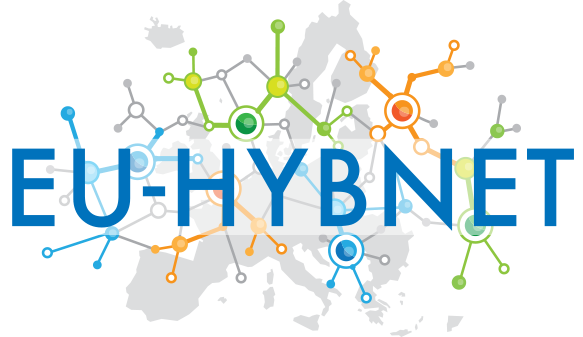
Agreement no.: 883054
Period of implementation: May 2020 – April 2025
Participating organizations:
Laurea University of Applied Sciences – Finland
City of Espoo – Finland
Hybrid CoE – Finland
Polish Platform for Homeland Security (PPHS) – Poland
Polish Internal Security Agency – Poland
University of Tromso (UiT) – Norway
Norvegian Directorate for Civil Protection – Norway
Research Institutes of Sweden (RISE) – Sweden
Center for Security Studies (KEMEA) – Greece
Satways – Greece
Implementation of the Lithuanian Cybercrime Centre of Excellence for Training, Research & Education (L3CE) – Lithuania
Universidad Rey Juan Carlo (URJC) – Spain
Maldita – Spain
Local Police of the city of Valence – Spain
French Ministry of Ecological and Solidarity Transition – France
Netherlands Organisation for Applied Scientific Research (TNO) – The Netherlands
Netherlands Ministry of Defense – The Netherlands
Universita Cattolica del Sacro Cuore – Italy
“Mihai Viteazul” National Information Academy (ANIMV) – Romania
German Central Offica for Information Technology in the Security Sector – Germany
Competence Center COMTESSA – Germany
Estonian Information System Authority – Estonia
Joint Research Centre European Commission (JRC)
European Organization for Security (EOS)
Abstract
“Empowering a Pan-European Network to Counter Hybrid Threats” (EU-HYBNET) – is a five year project funded by the European Commission (No. 883054) Horizon 2020 Programme. The EU-HYBNET is a Pan-European network of collaborating security practitioners, stakeholders, academics, industry players, and SME actors across EU, in ever increasing numbers to counter hybrid threats. The project consortium consists of 25 organisations representing 16 European countries.
The aim of the project is to develop a European network to prepare for, detect and counter hybrid threats. The European Centre of Excellence for Countering Hybrid Threats (Hybrid CoE) located in Helsinki Finland, is the main content provider for the whole project.
“Mihai Viteazul” National Intelligence Academy, as partner within this project, deals with part of the research process and will also be host of a series of workshops taking place in Bucharest.
More information can be found on the Project’s website – https://www.euhybnet.eu.
*EU-HYBNET project has received funding from the European Union’s Horizon 2020 research and innovation programme under grant agreement no. 883054.
THESEUS – Connect the Disconnections – from Disparate Data to Insightful Analysis
Ongoing project

Agreement no.: 18-COP-0017
Period of implementation: October 1st, 2019 – September 30th, 2021
Participating organisations:
“Mihai Viteazul” National Information Academy (ANIMV) – Romania
University of Malta (UoM) – Malta
Norwegian University of Science and Technology (NTNU) – Norway
National University of Political Studies and Public Administration (SNSPA) – Romania
Abstract
THESEUS Project aims at Connecting the Disconnections between Disparate Data, in order to provide knowledge for building Insightful Analysis. The broad availability of data has led to increasing interest in methods for extracting useful information and knowledge from data, determining the emergence of new fields of science (e.g. data science). At the same time, big data algorithms have been signaled as a potential leverage that can lead to digital dictatorship if insufficiently understood, poorly handled and unethically regulated. Companies in every industry focused on ways to structure, process and analyze the growing volume and diversity of data so as to streamline decisions and gain a competitive edge. State institutions, regular citizens, social and political science practitioners on the other hand, are not yet properly equipped to properly mitigate the economic, social and political impact of the information technology revolution that awaits us in the decades to come. Therefore, in the process of understanding and mitigating risks and opportunities of Big Data, complex workloads, new skills and competences have to be acquired.
Following these emerging needs, the objective of the project is to enhance human capital and knowledge base by tackling directly skills and competences required and providing an understanding of the processes guiding big data analytics.
This objective will be met by building and delivering a course, consisting of four modules, capitalizing on big data methodologies: introductory module, data collection module, data processing module and data analysis module.
The course will not be designed as a technologically focused course, but rather a knowledge, awareness and understanding focused course. The course avoids an algorithm-centered approach. It focuses on how options are understood and choices and tradeoffs are designed. Thus, it enhances, through learning by doing, key-competences and skills required in collecting, understanding, correlating and processing big data, helping them streamline problem-solving processes in a data-driven ecosystem.
The project addresses two professional categories: governance and social scientists and national security practitioners, whose complementary work is of paramount importance in insuring the sustainable development of democracy.
THESEUS Project is part of the Education, Scholarships, Apprenticeships and Youth Entrepreneurship Programme in Romania, being funded by the EEA Grants – Financial Mechanism 2014-2021.

ARMOUR – A RADICAL MODEL OF RESILIENCE FOR YOUNG MINDS
Ongoing project
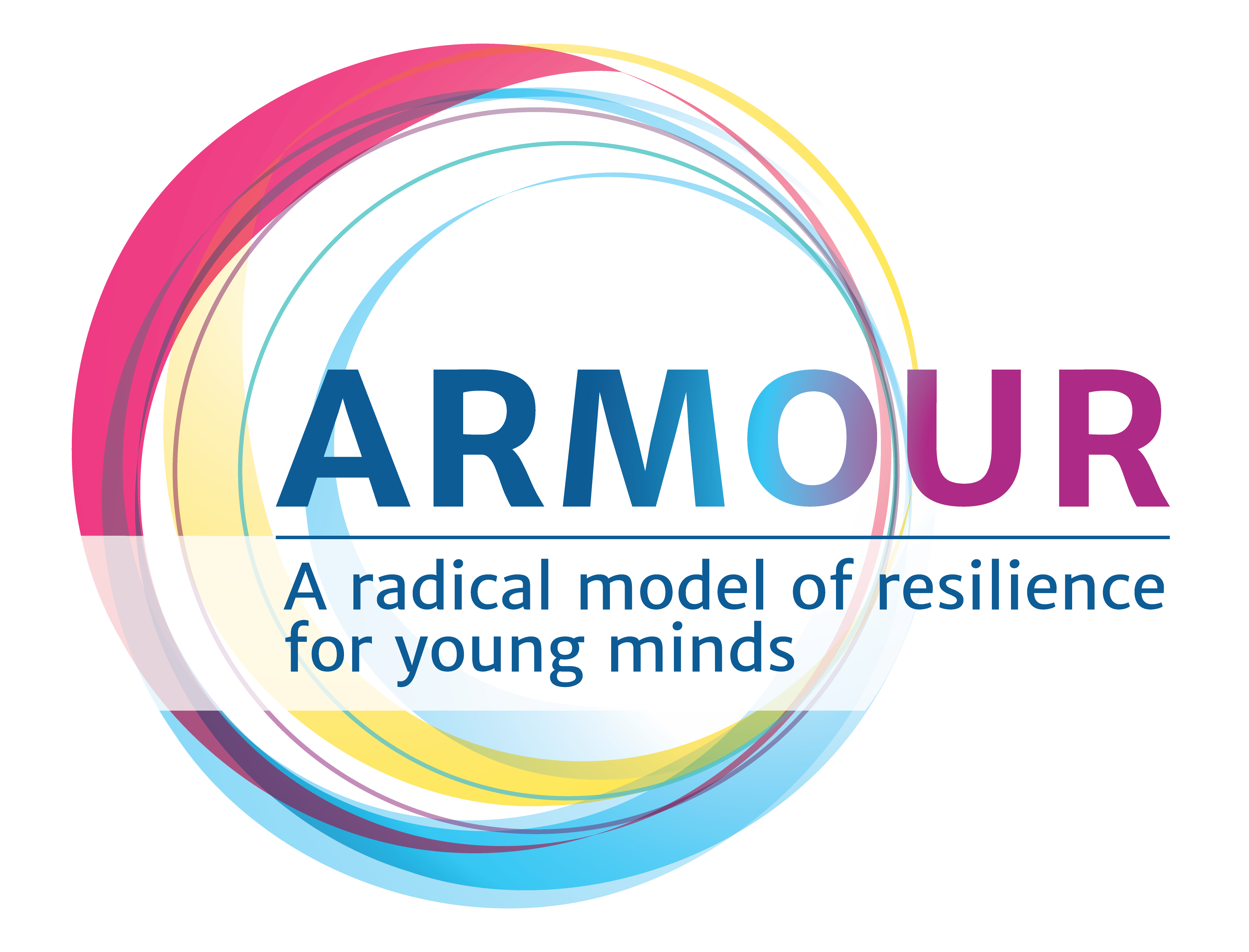
Grant agreement no. 823683
Implementation period: January, 2019 – December, 2020
Participating organizations:
FUNDACION EUROARABE DE ALTOS ESTUDIOS – Spain
KENTRO MELETON ASFALEIAS – Greece
“MIHAI VITEAZUL” NATIONAL INTELLIGENCE ACADEMY – Romania
SYNYO GmbH – Austria
MINISTERO DELLA GIUSTIZIA – Italy
AGENFOR INTERNATIONAL – Italy
FONDATSIYA LIBRE – Bulgaria
UNIVERSITA TA MALTA – Malta
RIJKSUNIVERSITEIT GRONINGEN – The Netherlands
Abstract
ARMOUR Project aims to address societal polarization via strengthening resilience of individuals, communities and vulnerable groups (such as children, youth, etc.) to polarisation, and to promote interaction and cooperation between different local actors from public sectors, i.e. law enforcement, social services, etc., that specialise in working with vulnerable groups in preventing extremism through development of cooperation models. The project will design and create a Toolkit for first-line practitioners to employ in reducing polarization among children and youth.
The Toolkit, capitalizing on previous work carried out by project partners, takes the form of experimental laboratories (experimental labs) which together work towards: strengthening individual capacity to resist push and pull factors of radicalization; creating community empowerment and resilience to social polarization and violent extremism and assisting states deploy proportional responses against provocations and latent conflicts. The model will then be promoted through a social media campaign.
The expected impact of the project covers the following aspects:
- Increasing awareness and capacity of first-line practitioners: ARMOUR achieves this through the experimental labs and the related training programme. The first tool will help practitioners better understand and identify instances of radicalization and polarization among children and youth while the second one will help them improve their ability to use the project toolkit.
- Promoting interaction and cooperation among different stakeholders: ARMOUR achieves this by organizing the experimental labs in which practitioners and members of vulnerable communities have trusted interactions.
- Promoting the views of moderate voices by engaging with the silent majority and integrating them into the experimental lab.
- Developing and promoting concrete tools targeting vulnerable groups: the experimental lab combined with the best practices identified in the project and the online campaign are concrete tools which key actors can use when working with vulnerable youth.
ESSENTIAL – Evolving Security SciencE through Networked Technologies, Information policy and Law
ESSENTIAL – project funded by the Horizon2020 Programme of the European Union
Period of implementation
January 1st 2017 – December 31st 2020
ESSENTIAL is a 4-year European project, with an estimated budget of 3.756.496,68 euro (MVNIA budget – 645.206,04 euro). ESSENTIAL provides an European Joint Doctoral Studies program in the field of intelligence and national security. It aims to train inter-disciplinary security experts and professionals, to tackle security threats in a systematic manner and
to increase societal resilience and security by addressing in an interdisciplinary manner 15 research topics, each associated with long-standing problems in the field of security science.
SAFFRON – Semantic Analysis against Foreign Fighters Recruitment Online Networks
Completed project
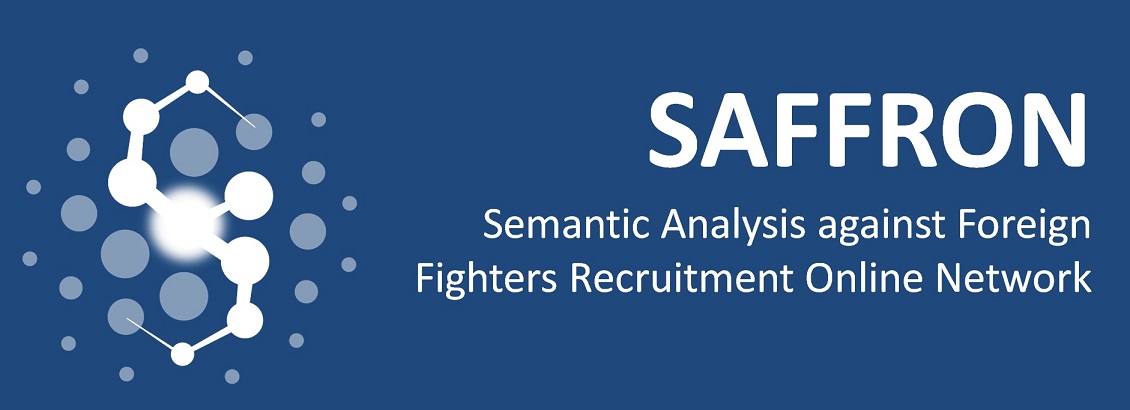
SAFFRON – project co-funded by the Internal Security Fund – Preventing Radicalisation to Terrorism and Violent Extremism
Period of implementation February
1st 2016 –January 31st 2018
Semantic Analysis against Foreign Fighters Recruitment Online Network (SAFFRON) is a 2-year European project (February 2016-January 2018) with a budget of 672 244,62 euro (MVNIA budget – 19.134,70 euro). SAFFRON is cofunded by the Internal Security Fund of the European Union.
The aim of SAFFRON is to build a system able to support early detection of foreign fighters recruitment by terrorist groups in Europe, with a focus on ISIS and Al-Qaeda. It consists in studying recruitment communication strategies on social media (e.g. narrations, argumentative tropes and myths used), and their evolution in time, as well as identification of needs, values, cultural and social contexts of the target.
The output of the project is a software tool used by all relevant players to identify in a timely fashion both all internet activities of direct and indirect recruitment of Foreign Fighters and all signals (weak or strong) pointing at radicalization of single individuals.
CARISMAND – Culture And RISkmanagement in Man-made And Natural Disasters
Completed project
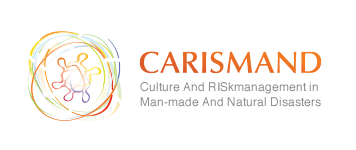
Taking into account that risks are rather not „non-objective” but socially and culturally constructed, disaster management observes and uses local cultural aspects, an approach which is not only efficient, but also improves the community’s disaster response capacities.
CARISMAND aims at identifying these factors, exploring existing gaps and opportunities for improvement of disaster policies and procedures, and developing a complex set of tools enabling professional and voluntary disaster managers adopt culturally-aware practices on a daily basis.
This can be achieved by approaching the links and gaps among disaster management, culture, and risk perception from a wide multidisciplinary point of view and, simustaneously, by developing feedback between disaster management stakeholders and citizens to establish, test, and redefine solutions for culturally-informed best practices in disaster management. While experts from various fields (especially legal, IT, cognitive sciences, anthropology, psychology, sociology) will provide a comprehensive collation of existing knowledge and structures, Citizen Summits and Stakeholder Assemblies will be organized.
Systematically, CARISMAND will address natural, man-made, and technical disasters, focussing on specific aspects that affect risk perception by culturally-informed individuals (e.g. disasters caused intentionally or not, hazard “visibility”, various disaster time scales). By organizing summits (Citizen Summits), two per disaster category per year in two different locations where the occurrence of such risks is prominent, and 3 meetings of policy makers (Stakeholder Assemblies), one per year, to discuss the results through a cross-sectional transfer of knowledge between disaster managers from various areas as well as from different cultural backgrounds.
The project will contribute to the improvement of crisis management capabilities in the case of terrorist attacks or other potential threats to national security.
http://www.carismand.eu/mihai-viteazul-national-intelligence-academy-mvnia-romania.html
CityCOP – Citizen Interaction Technologies Yield Community Policing
Completed project

The activity of the community police has received a new impetus with the recent emergence of smartphones and social media, and in particular user generated content (UGC) in which citizens engage in close interaction with the local community and law enforcement agency (LEA). The period 2010 – 2014 witnessed a rapid development of smartphone applications intended to improve the process of crime and other forms of UGC reporting and interaction associated with community policing.
However, applications are marked by a Anglo-Saxon approach, most of them originating in the United States, Canada and Australia with UK apparently being the only country from the European Union which adopted these technologies. CITYCoP aims at identifying why the European Union seems to be lagging behind, despite the fact that Community Policing has been implemented in several European countries. At the same time, CITYCoP aims at identifying solutions, including a new smartphone application and an online portal that can be used in any European city, while preserving “local flavor” and diversity.
These ICT solutions will be designed from scratch to comply with strict privacy and data protection laws. A training program, which includes games, will be developed to improve officers and citizens’ training in using both the application and the online portal.
CITYCoP will benefit from a multidisciplinary approach which will include community policing sociology and cognitive science perspectives related to the technological interaction among citizens, the community and LEAs.
After years of successful cooperation in European projects on UGC, smart surveillance, and personal privacy (CONSENT, SMART, RESPECT), CITYCoP Partners have developed solutions that would lead to CITYCoP integration into smart ecosystems. CITYCoP will implement multilingual applications for smartphone, portals and packages of games for training workshops in Bucharest (Romania), Lyon (France), Florence (Italy), and Sheffield (UK).
Through its results, the project will strengthen the partnership with civil society, and increase awareness as an essential component of national security; the citizen is not only the beneficiary, but also the contributor to the achievement of national security related goals.
PN-II-RU-TE-2014-4-1669 – SOCIAL PERCEPTIONS AND COMMUNICATIONAL STRATEGIES IN RISK PREVENTION. A NATIONAL SECURITY PERSPECTIVE (REACT)
Completed project
Implementation period
October 1st, 2015 – September 30th, 2017
Project abstract
Starting from the assumption that the risk perceived is a complex concept, defined as the possibility that a negative occurrence takes place and whose perception differs from one individual to the next, our research project proposes the use of qualitative research methods (Q sort method) in order to measure and define Romanians’ knowledge, attitudes and practices regarding national security risks. Therefore, the objective of our research consists in the elaboration of solutions for the optimization of the management of security risks and communication strategies for national security institutions, through the analysis and evaluation of social perception over national security risks. REACT project aims to improve the research skills on risk perception of the research team members through their involvement in conducting sociological research in a relatively new field at national level: social risk perception analysis. Having greater knowledge in the field of social risk perception can thus improve the quality and impact of decisions throughout society, and the quality of risk communication strategies. In the same time, the project contributes to the development of the field of risks perception analysis, by training specialists for high level academic research, young experts well-read and highly proficient in risk analysis methods, who can face the new academic challenges.
The project is developed within the framework of the National Plan for Research, Development and Innovation 2007-2014, Human Resources Program, Young Research Teams Subprogram (PN II-RU-TE-2014-4-1669), regulated by contract no. 335 / 10.01.2015.
The objective of this research project is to improve national practices used in risk management and risk communication, by supporting experts and security professionals in developing effective communication strategies. The research will help improve national security early warning systems as well as the integration of social perceptions as a work variable into the decision making process.
The study on national security risks perception and on the measures to corroborate communication of the identified risks will be disseminated to the national intelligence community in Romania in order to improve the projection process for communication strategies.
Through the research, the project aims at the following outcomes:
- research paper on Romanian society’s perceptions concerning national security risks
- participation of project members in national and international conferences in the field of intelligence and security studies, on topics subscribed to the area of the proposed research project
- dedicated volume with international acknowledgement, published by a nationally recognized publishing house
- workshop with representatives from four targeted groups: academics, private, civic (NGOs) and public institutions (national security structures and bodies)
- workshop dedicated to the completion of the REACT project and the launching of the dedicated volume comprising the research results
The project team is made up of:
- Dr. Irena Chiru, Project Manager, director of the National Institute for Intelligence Studies of ANIMV, with a PhD in sociology at the University of Bucharest, expert in communication and social perceptions
- Dr. Nicula Valentin, researcher at the National Institute for Intelligence Studies of ANIMV, with a PhD in Intelligence and National Security at the Doctoral School of ANIMV
- Dr. Valentin Stoian, researcher at the National Institute for Intelligence Studies of ANIMV, has a PhD in Political Sciences at the Central European University in Budapest, specialist in political science and corruption
- Dr. Ivan Cristina, researcher at the National Institute for Intelligence Studies of ANIMV, with a PhD at the Doctoral School of Literary and Cultural Studies, University of Bucharest, specialist in applied research of the phenomena of radicalization and terrorism
Project endorsed by the Romanian National Authority for Scientific Research and Innovation and financed by the Executive Unit for Higher Education, Research, Development and Innovation Financing.
Activities
– Round table March 2016 (agenda and participants list)
– Round table October 2016 (agenda)
Results
| No. crt. | Type | Name |
| 1 | Article | “Russian Expansionism as a National Security Threat for Romania: Historical Origins”, Revista Română de Studii de Intelligence, 2016 (Etapa:2) |
| 2 | Article | ”Communication Strategy and Risk Awareness”, Revista Română de Studii de Intelligence, 2016 (Etapa:2) |
| 3 | Article | “Violence transgression and risk perception. Hospitality as a paradigm shift.”, Revista Română de Studii de Intelligence, 2016 (Etapa:2) |
| 4 | Conference presentation | SCOPE 2016: Science of politics; 3rd International Interdisciplinary Conference of Political Research, București, 2016 (Etapa:2) |
| 5 | Conference presentation | 12th Annual IAFIE Conference, Breda, Olanda, 2016 (Etapa:2) |
| 6 | Conference presentation | 12th Annual IAFIE Conference, Breda, Olanda, 2016 (Etapa:2) |
| 7 | Conference presentation | Decline or eclipse of democracy in Europe’s New Democracies?, Belgrad, Serbia, 2016 (Etapa:2) |
| 8 | Conference presentation | International Conference Intelligence in the Knowledge Society (22nd edition), București, România, 2016 (Etapa:2) |
| 9 | Conference presentation | International Conference Intelligence in the Knowledge Society (22nd edition), București, România, 2016 (Etapa:2) |
| 10 | Conference presentation | Congresul internațional Mind Over Technology, București, România, 2016 (Etapa:2) |
| 11 | Conference presentation | ECREA 2016 – 6th European Communication Conference, Praga, Cehia, 2016 (Etapa:2) |
| 12 | Conference presentation | Political Masculinities as Agents of Change Interdisciplinary Conference, Cambridge, Marea Britanie, 2016 (Etapa:2) |
| 13 | Conference presentation | Fear, Horror and Terror. Special Focus: (in)Security, Oxford, Marea Britanie, 2016 (Etapa:2) |
| 14 | Book Chapter | “Globalized violence and the new sites of contestation”, Fear, Horror, Terror and Insecurity, Inter-Disciplinary.Net, Priory House, Oxfordshire, UK, 2016 |
ACTIVITY REPORTS: 2015 and 2016
This work was supported by a grant of the Romanian National Authority for Scientific Research and Innovation CNCS-UEFISCDI Project number PN-II-RU-TE-2014-4-1669
INTELLISEC – Dezvoltarea unui Centru Național de Cercetare în Intelligence şi Securitate
Completed project
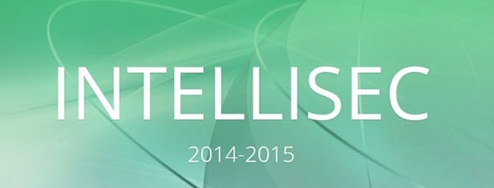
The National Center for Research in Intelligence and Security – INTELLISEC was developed within the European Union’s national funding Program – Sectoral Operational Programme ”Increase of Economic Competitiveness”, aiming to increase the efficiency of the research activity, as well as enhancing the intelligence processes conducted within public and private institutions, identifying and implementing innovative solutions in intelligence and developing complex intelligence products, that will determine an increase of economic competitiveness. Within the project, MVNIA developed The National Center for Research in Intelligence and Security – INTELLISEC, organized three distinct laboratories (Modeling and simulation in intelligence, Innovative analytical methods, OSINT analysis) that use innovative analytical software.
OSCINT XXI
Completed project

OSCINT XXI was co-funded by the European Social Fund through the SECTORAL OPERATIONAL HUMAN RESOURCES DEVELOPMENT PROGRAM (2007-2013). The project’s goal was to support human resources development and increase competitiveness by correlating lifelong learning processes with labor market demands. As the main beneficiary, “Mihai Viteazul” National Intelligence Academy’s mission was to provide intelligence education and promote innovative knowledge society solutions. It was a new iteration of another OSCINT 2009 project addressed to a group of approximately 1,200 people, lower and higher secondary school teachers, who underwent training in digital and innovative knowledge society solutions.
ARMLET – Setting-up an Air Marshal Training Centre
Completed project

ARMLET was a project funded by the European Commission through the Prevention and Fight against Crime Project – ISEC 2013. The opening conference hosted renowned experts in the field of aviation security from Germany, France, Netherlands, Great Britain, the Czech Republic, the United States of America, Romania, and the Republic of Moldova. The project covered 24 months, between July 2014 and June 2016, and was aimed at strengthening relevant institutions’ operational capacities in the field of fighting against in-flight threats by creating a training center for security officers specialized in this field.
